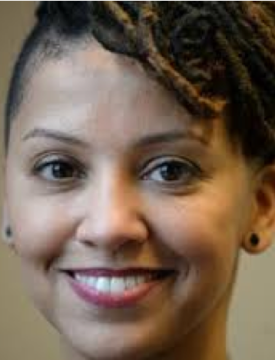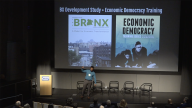
Dr. Karilyn Crockett
Professor of Urban History, Public Policy & Planning, MIT
Dr. Karilyn Crockett focuses her research on large-scale land use changes in twentieth century American cities and examines the social and geographic implications of structural poverty. Karilyn’s new book "People before Highways: Boston Activists, Urban Planners, and a New Movement for City Making" (UMASS Press 2018) investigates a 1960s era grassroots movement to halt urban extension of the U.S. interstate highway system and the geographic and political changes in Boston that resulted. Karilyn was the co-founder of Multicultural Youth Tour of What's Now (MYTOWN), an award winning, Boston-based, educational non-profit organization. MYTOWN hired public high school students to research their local and family histories to produce youth-led walking tours for sale to public audiences. During its nearly 15 years of operation, MYTOWN created jobs for more than 300 low and moderate-income teenagers, who in turn led public walking tours for more than 14,000 visitors and residents. In a White House ceremony, the National Endowment for the Humanities cited MYTOWN as “One of ten best Youth Humanities Programs in America.” Karilyn holds a PhD from the American Studies program at Yale University, a Master of Science in Geography from the London School of Economics, and a Master of Arts and Religion from Yale Divinity School. She currently serves as the Director of Economic Policy & Research and Director of Small Business Development for the City of Boston and is a research affiliate in the Department of Urban Studies & Planning at MIT. Karilyn’s career mission is to work at the nexus of education, economic development and urban revitalization.
-
Upward Mobility in Boston: 50 Years After Busing
Partner:Ford Hall Forum -
Ground Truth: Shaping Narratives of Environmental Justice
Partner:Boston Public Library -
-
-
The Great Molasses Flood Revisited: Labor and the Molasses Flood
Partner:Revolutionary Spaces -
-
Karilyn Crockett: Filling in the Gaps - Youth Contributions to the Study of Our History
Partner:Revolutionary Spaces





